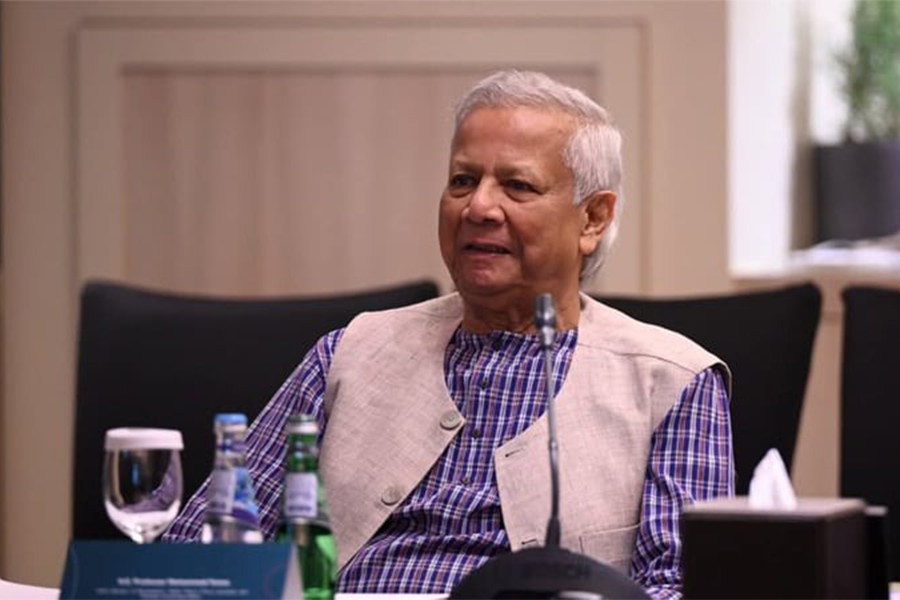
Published :
Updated :

Chief Adviser Professor Muhammad Yunus has warned that the prolonged Rohingya crisis could jeopardise security and stability across the entire Asian region, urging the international community to work together towards lasting solutions.
“Let us work—together—for humanity, for stability, and for justice,” said Prof Yunus while addressing a high-level roundtable titled “Social and Environmental Challenges Around Forcibly Displaced Populations—The Case of the Rohingya” at the Mandarin Oriental Hotel on Wednesday morning.
Prof Yunus emphasised that the extended presence of Rohingya refugees poses significant challenges for Bangladesh and contributes to rising frustration among the displaced population. He noted increased criminal activity in refugee camps and a surge in illegal migration attempts as clear signs of growing desperation.
“If the crisis continues unresolved, it may undermine regional stability and threaten ongoing development initiatives,” he cautioned.
The chief adviser expressed concern that global attention is gradually drifting away from the Rohingya issue due to emerging conflicts in other parts of the world. He suggested that Qatar could play a key role in pressuring Myanmar to begin repatriation without further delay.
“Qatar can also mobilize OIC countries to increase funding and advocacy efforts for Rohingya repatriation,” he added.
Prof Yunus stressed that the discussions at the roundtable must translate into meaningful action. “Let today not end with mere formalities but mark the beginning of a true partnership focused on solutions,” he said.
Bangladesh currently hosts approximately 1.3 million forcibly displaced Rohingyas, with around 32,000 births added annually. Despite the overwhelming burden, Bangladesh continues to offer shelter based solely on humanitarian grounds, Prof Yunus said.
He reaffirmed that sustainable repatriation is the only viable resolution to the crisis.
Discussing the current situation in Myanmar, Prof Yunus pointed out that the Arakan Army now controls 271 kilometers of the Bangladesh-Myanmar border and 14 of Rakhine State’s 17 townships. As of February 2025, Rakhine hosts 538,876 internally displaced persons, including 152,071 stateless Rohingyas living in protracted camps.
He further noted that over 100,000 new Rohingyas have fled to Bangladesh since November 2023, fleeing Myanmar’s ongoing armed conflict. Since February 2024, 909 Myanmar security personnel have crossed into Bangladesh; 875 have been repatriated, and the remaining 34 are awaiting return.
Prof Yunus, a Nobel Peace Laureate, also raised concern over dwindling humanitarian aid. The 2024 Joint Response Plan (JRP) secured only 64.4% of its $852.4 million target, and the newly launched 2025-26 JRP requires $934.5 million to support 1.48 million individuals, including host communities in Cox’s Bazar and Bhasan Char.
He noted that recent foreign assistance cuts, particularly from the United States—the JRP’s largest donor—could worsen the situation. The World Food Programme (WFP) recently avoided a funding cut for April 2025 but warned of another possible shortfall by September.
“Bangladesh is working with global partners to maintain funding flows. Qatar could play a significant role here,” said Prof Yunus.
Looking ahead, he announced that Bangladesh will host a “High-Level Conference on the Situation of Rohingya Muslims and Other Minorities in Myanmar” under the UN's auspices, likely in September 2025 in New York, and called for Qatar’s political and financial support.
Prof Yunus thanked the Qatar Foundation for organising the roundtable and for supporting initiatives that move beyond rhetoric towards action and accountability.
“This meeting is not ceremonial—it’s a working group of governments, international bodies, NGOs, and the private sector,” he said. “The Rohingya crisis is not just a humanitarian issue—it’s a complex challenge with deep social, economic, political, and environmental consequences.”
The event was attended by Foreign Adviser Md Touhid Hossain, National Security Adviser Khalilur Rahman, Energy Adviser Muhammad Fouzul Kabir Khan, Principal SDG Coordinator Lamiya Morshed, and Chief Adviser’s Press Secretary Shafiqul Alam, among others.


 For all latest news, follow The Financial Express Google News channel.
For all latest news, follow The Financial Express Google News channel.